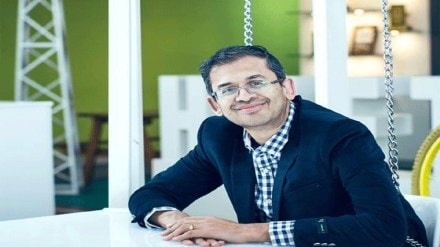Roll-up commerce venture Mensa Brands, founded by former Myntra CEO Ananth Narayanan, became Asia’s fastest unicorn in 2021. Now rebranded as brand.me, the company is rationalising its portfolio to focus on two categories, lifestyle and health & wellness. Narayanan, in an interview with Anees Hussain, shares the thinking behind the rebrand, IPO plans, and why brand strength, and not labels, will define the next phase of consumer growth.
Q. You’ve rebranded from Mensa to brand.me. What prompted the change?
A. As we prepare for a public listing, we wanted a brand identity that works globally and across categories. brand.me will be the parent-facing brand, while the company itself remains Mensa. Think of it like Hindustan Unilever, a strong umbrella under which many brands operate. This gives us flexibility and consumer recall in different geographies.
Q. What led to recent exits from your portfolio?
A. We have exited electronics by selling Pebble, and also sold media properties like MensXP and iDiva. These didn’t align with our operating model. Our stake in Renee Cosmetics was always a financial investment and we have received inbound interest there. The goal is focus and profitability, trimming down to the categories we want to scale.
Q. Will this shift lead to internal restructuring?
A. We now have two clearly defined verticals: health and wellness, which contributes 60% of our revenue, and lifestyle, which makes up the remaining 40%. In health and wellness, we are building on three core brands. In lifestyle, we have consolidated multiple brands under mother brands. For instance, all ethnic wear is now under Ishin. Similarly, for western wear, everything now falls under Dennis Lingo. It’s more about back-end consolidation; the consumer experience remains consistent.
Q. International markets contribute half your revenue. What’s next for global expansion?
A. We have built a strong international business through online channels in the US, UK, Canada, Germany, and the Middle East. Now we are expanding offline, we are in talks with Target in the US and large retailers in Germany. In the Middle East, platforms like noon minutes are performing well in quick commerce, so we are staying online-first there. The larger opportunity is to build global brands from India, that wasn’t possible a decade ago, but it is now.
Q. How significant is quick commerce in your overall strategy?
A. It’s about 8–10% of our total revenue and growing. Some categories are doing extremely well, our party needs brand dominates with 80% share on quick commerce platforms and 50% on traditional e-commerce. MyFitness, our healthy snacking brand, leads the category with its peanut butter offering. Quick commerce works well for impulse or immediate needs, and we are seeing that play out.
Q. With rising competition from private labels, how do you retain consumer trust?
A. MyFitness is probably the most expensive peanut butter in the market, yet it leads with over 20% share. We even perform well at retailers like D-Mart and Reliance, which have their own private labels. That’s because we don’t just sell products, we build brands. Labels can be copied, brands cannot. It’s a harder path, but it’s the sustainable one.
Q. How large can your brands become over time?
A We believe four brands can each cross Rs 1,000 crore in revenue: MyFitness, Majestic Pure (essential oils), Botanic Earth (plant-based skincare), and Party Celebration. The rest can scale to Rs 200–300 crore. With a sharper focus on health & wellness and lifestyle, we are confident in achieving that.
Q. What’s your timeline for going public?
A. We are targeting an IPO in 14 to 24 months. We have already started the flip from Singapore to India. We are a $200 million run rate business, Ebitda profitable for eight months, and free cash flow positive for four. In India’s current public market, a company growing 15–20% at our size and profitability is very attractive, and we are getting ready for that.
